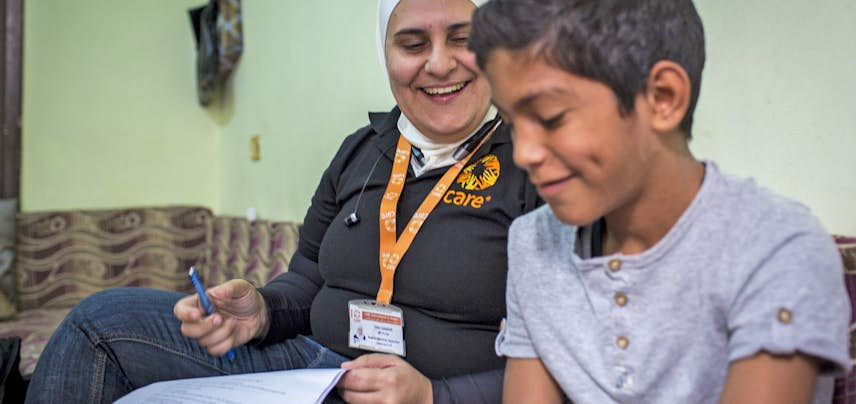Introduction
In 2020, 91 associations were approved by the Ministry of Foreign and European Affairs under the amended Law of 6 January 1996 on development cooperation and humanitarian action.
NGOs represent a complementary conduit for bilateral aid, enabling Luxembourg’s Development Cooperation to be active in countries, zones and sectors where the Ministry does not intervene or which it is difficult for it to access. Thus, the NGOs are partners of Luxembourg’s Development Cooperation in the fight against poverty and social inequality, and are not government officials.
The year 2020 was affected by the COVID-19 pandemic, which impacted the work of the NGOs, which found themselves forced to suspend or to adjust their activities. In order to enable development NGOs (NGDOs) to continue their activities on the ground, the MFA offered the option to Luxembourgish NGDOs to reallocate funds within their projects. These reallocations enabled NGDOs to have the requisite funds to support their partners to address the consequences of the virus. Where reprogramming was not possible, the MFA provided additional budgets to the NGDOs affected.
Despite the budget constraints linked to the COVID-19 pandemic, and in order to avoid interruption in assistance, the MFA chose not to reduce the budgetary assistance given to NGDOs. In contrast to bilateral cooperation through LuxDev, the NGOs were thus able to benefit from full support from Luxembourg’s Development Cooperation, even at the height of the COVID-19 pandemic.
The year 2020 also saw an increase in security incidents. In the face of the situation in some fragile States where the NGDOs operate, the MFA decided in 2020, within development projects, to unblock resources to finance not only security training for local partners and volunteers but also non-lethal equipment, eligible as official development assistance, required in order to ensure the safety of local partners and volunteers.
Following some cases linked to sexual exploitation and abuse and sexual harassment (SEAH) in the development cooperation and humanitarian action sector internationally, the Ministry and the NGOs’ Cercle de Coopération decided to produce a Charter to prevent and respond to SEAH. The Charter is aligned with the DAC’s recommendation on ending sexual exploitation, abuse and harassment in development cooperation and humanitarian assistance. The MFA decided to make the granting or renewal of ministerial approval by the MFA conditional on membership of this Charter, from January 2021.
In 2020 the NGDOs disbursed EUR 85,340,843.42 for development cooperation activities, particularly through the main financial instruments:
- Development cooperation framework agreements: 25 framework agreements were co-financed in 2020, including two framework agreements carried out as a consortium, at a total cost of EUR 29,696,045.47
- In 2020, 5 multiannual framework agreements were extended, at a total cost of EUR 23,929,115.04 for the MFA share
- Co-financing of development projects: 76 individual projects by 36 NGOs were supported in 2020, at a total cost of EUR 9,476,379 for the MFA share
- In total, the ODA allocated to national NGOs in 2020 was EUR 68,593,871 i.e. 25% of Luxembourg’s official bilateral development assistance.
This amount also includes the ODA allocated for humanitarian action (emergency aid, food aid, crisis prevention, reconstruction and rehabilitation), subsidies for public awareness-raising and development education in Luxembourg, and support for NGOs’ administrative expenses.
The number of approved NGOs and the high percentage of ODA allocated to NGOs bear witness to the value placed by the people of Luxembourg and Luxembourg’s Development Cooperation on civil society organisations as separate development operators. The Ministry’s strong commitment to Luxembourgish NGOs is thus enabling ODA to remain at around 1% of GNI.
The Directorate for Development Cooperation and Humanitarian Affairs cultivates regular, constructive dialogue with the NGOs, represented by the Cercle de Coopération des ONG of Luxembourg, seen in particular in the meetings of the MFA-NGO working group, which met on four occasions in 2020.
